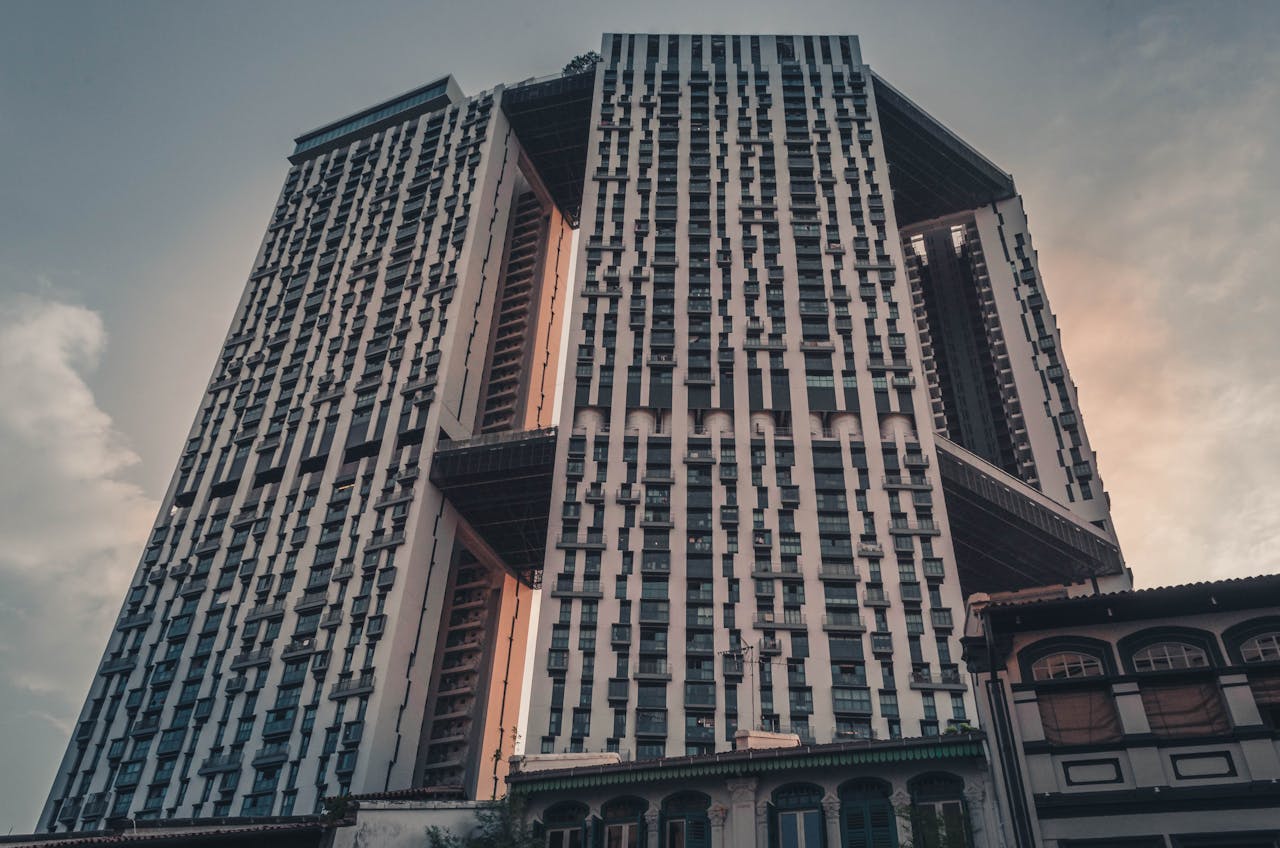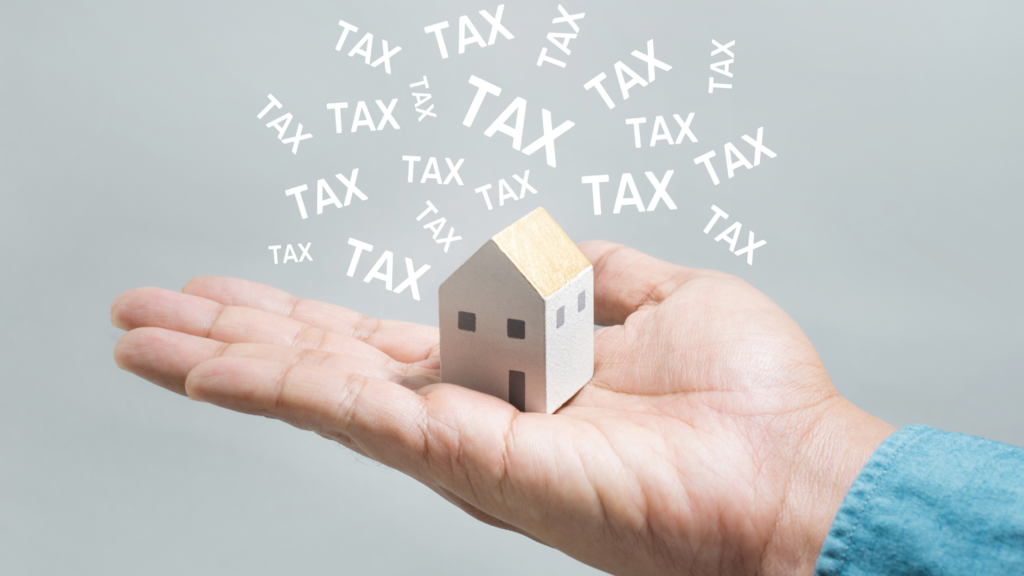
Introduction
Navigating Singapore’s property market in 2025 can feel like solving a complex puzzle. With evolving cooling measures, changing interest rates, and new property trends emerging, having a clear roadmap for your property journey has never been more crucial.
In this comprehensive guide, we’ll walk you through everything you need to know about buying property in Singapore, whether you’re:
- A first-time homebuyer exploring your options
- An HDB owner looking to upgrade
- A property investor seeking opportunities
- A permanent resident understanding your eligibility
Why This Guide Matters
The Singapore property market stands out globally for its unique characteristics:
- One of the world’s highest home ownership rates (over 89%)
- A hybrid system of public and private housing
- Strict regulations and cooling measures
- Innovative financing solutions
- Strong government oversight
Having studied intensively on the Singapore property market, I’ve learned that successful property purchases come down to three key elements:
Key Success Factors:
- Understanding Your Options
- Different property types available
- Eligibility and restrictions
- Grant schemes and subsidies
- Financial Planning
- Down payment requirements
- Loan eligibility criteria
- Hidden costs and fees
- Process Mastery
- Property search strategies
- Negotiation techniques
- Legal requirements
Don’t rush into property hunting before understanding these fundamentals. The most expensive mistakes often come from jumping in without proper preparation.
What This Guide Covers
- Property Types
- HDB options (BTO, resale)
- Private property choices
- Executive Condominiums
- Landed properties
- Financial Planning
- Loans and mortgages
- Grant schemes
- Tax considerations
- Hidden costs
- Property Search
- Location analysis
- Property valuation
- Viewing checklist
- Red flags to watch
- Purchase Process
- Legal requirements
- Documentation
- Timeline expectations
- Common pitfalls
- Moving In
- Utility Setup
- Property inspection
- Renovation planning
- Community integration
Let’s begin your property journey with a solid understanding of the different property types available in Singapore’s market.

Understanding Property Types in Singapore
Singapore’s unique property market offers a variety of housing options, each with distinct characteristics and requirements. In 2025, with property prices reaching new highs and cooling measures in place, understanding these different options is crucial for making an informed decision.
Public Housing (HDB)
The backbone of Singapore’s residential landscape, Housing & Development Board (HDB) flats house over 80% of Singapore’s population. These public housing options offer affordable and quality housing, particularly for first-time homeowners.
HDB flats come in two main categories:
Build-To-Order (BTO) Flats
These are new flats built to order, offering the most affordable entry into property ownership. Prices typically range from $200,000 for a 3-room flat in non-mature estates to $700,000 for larger units in mature estates. While they require a 3-5 year wait for construction, BTOs offer significant savings compared to resale options.
Key advantages include:
- Brand new unit with fresh 99-year lease
- Most affordable housing option
- Maximum grant eligibility
- Choice of location within new developments
Resale HDB Flats
For those who need immediate housing or prefer established neighborhoods, resale flats offer a viable alternative. Prices range from $400,000 to over $1 million, depending on location, size, and remaining lease. These units often offer larger spaces compared to newer flats and come with developed amenities.
Important considerations include:
- No waiting time for completion
- Established neighborhoods with amenities
- Generally larger floor plans
- Eligible for certain housing grants
Private Condominiums
Private condominiums represent the next tier in Singapore’s property market, offering more facilities and fewer ownership restrictions compared to HDB flats.
Regular Condominiums
Available in various locations from the Core Central Region (CCR) to Outside Central Region (OCR), condos offer:
- Full facilities (pool, gym, security)
- No income ceiling restrictions
- Freedom to rent out immediately
- Potential for collective sales
Prices typically start from:
- OCR: $1.4 million
- RCR (Rest of Central Region): $1.8 million
- CCR: $2.2 million and above
Executive Condominiums (ECs)
ECs bridge the gap between public and private housing. Starting as subsidized housing with HDB rules, they become fully private after 10 years. This unique hybrid offers:
- Condo facilities at lower prices
- Initial HDB restrictions
- Potential for capital appreciation
- Income ceiling of $16,000
Landed Properties
The most exclusive residential property type in Singapore, landed properties offer space and privacy in land-scarce Singapore. They come in several forms:
- Terrace houses: From $3 million
- Semi-detached: From $4 million
- Bungalows: From $5 million
- Good Class Bungalows: From $30 million
Key features include:
- Maximum privacy and space
- Full control over property design
- Potential for rebuilding
- Limited availability
Making Your Choice
When selecting your property type, consider these key factors:
- Budget and financing options
- Family size and future needs
- Location preferences
- Investment objectives
- Eligibility criteria
Each property type comes with its own set of regulations, restrictions, and opportunities. Your choice should align with both your current circumstances and future plans, whether for own stay or investment.

Financial Planning Essentials
Understanding the financial aspects of property buying in Singapore is crucial for success. In 2025, with property prices reaching new highs and interest rates remaining volatile, proper financial planning can make the difference between a comfortable purchase and a stressful one.
Understanding Your Budget
The first step in your property journey is determining how much you can actually afford. Singapore has specific rules that limit your borrowing ability to ensure responsible lending.
The Total Debt Servicing Ratio (TDSR) caps your total monthly debt repayments at 55% of your monthly income. This includes not just your property loan, but all your other debt commitments like car loans and credit cards.
For example, if you earn $8,000 monthly, your total debt payments cannot exceed $4,400.
For HDB and EC buyers, there’s an additional restriction called the Mortgage Servicing Ratio (MSR), which limits your property loan payment to 30% of your monthly income. Using the same example, if you earn $8,000, your monthly property loan payment cannot exceed $2,400.
Down Payment Requirements
Different property types require different down payment amounts, and this is often where many buyers face their first challenge.
For HDB properties:
- With an HDB loan, you need 15% of the purchase price, which can come entirely from your CPF
- With a bank loan, you need 25%, with at least 5% in cash
For private properties:
- First property requires 25% down payment, with minimum 5% in cash
- Subsequent properties have higher down payment requirements
Understanding Core Property Costs
Property costs in Singapore fall into two categories: upfront costs and ongoing commitments.
Upfront Costs
The key costs you’ll face at purchase include:
- Purchase Price: The actual cost of your property
- Stamp Duties: These vary based on property type and your buyer profile
- Legal Fees: Typically $2,500-$5,000 depending on property type
- Valuation Fees: Usually a few hundred dollars
These costs often surprise first-time buyers who focus only on the property price. Remember to factor these into your initial budget calculations.
Monthly Commitments
Your regular expenses will include:
- Mortgage Payments: Your largest monthly commitment
- Property Tax: Varies based on your property’s annual value
- Maintenance Fees: Range from $20 for HDB to several hundred for condos
- Insurance: Basic fire insurance to comprehensive home coverage
These ongoing costs need to be sustainable within your monthly budget, leaving room for other life expenses and savings.
Available Grants and Support
Singapore offers various grants to help make property ownership more accessible, particularly for first-time HDB buyers. While grant amounts vary based on your circumstances, they can significantly reduce your initial costs. These include the Enhanced CPF Housing Grant, Family Grant, and Proximity Housing Grant.
Smart Financial Planning Tips
Successful property buyers typically follow these financial principles:
- Build an emergency fund covering 6 months of expenses before your purchase
- Account for potential interest rate increases in your budget planning
- Set aside funds for renovation and furnishing
- Consider future lifestyle changes that might affect your finances
- Plan for property taxes and regular maintenance
Remember, property ownership is a long-term commitment. While it’s important to understand these financial fundamentals, your circumstances will be unique. Consider consulting with financial advisors or mortgage specialists for personalized advice.
Looking ahead, understanding these financial aspects will help you move confidently into the property search process.

Property Search Process
The property search process in Singapore has transformed dramatically in recent years. While 90% of buyers now start their search online, successful property hunting requires a blend of digital research, physical viewings, and professional guidance.
Starting Your Search
Gone are the days of driving around neighborhoods looking for “For Sale” signs. Today’s property search typically begins with online platforms, but many buyers make the mistake of relying solely on these digital tools.
Key Search Platforms:
– PropertyGuru: Largest database, comprehensive filters
– 99.co: User-friendly interface, map-based search
– SRX: Advanced analytics and price tools
– URA/HDB Portals: Official transaction data
Pro Tip: Always compare asking prices with recent transactions. In 2025, asking prices often differ 10-15% from actual transaction values.
Location Research
Location remains the one factor that can’t be changed after purchase. Singapore’s continuous development means today’s remote area could be tomorrow’s sought-after neighborhood. Take Jurong East as an example – once considered far-flung, it’s now a major hub thanks to infrastructure developments and master planning.
Essential Location Factors:
1. Accessibility
– MRT connectivity (current and future)
– Bus routes and frequency
– Major expressway access
2. Amenities
– Schools within 1-2km
– Shopping and dining options
– Healthcare facilities
– Parks and recreation
3. Future Potential
– URA Master Plan developments
– Upcoming MRT lines
– New commercial hubs
– Infrastructure improvements
Viewing Properties
Despite technological advances, including virtual tours and 3D walkthroughs, nothing replaces physical viewings. The difference between online listings and reality can be striking.
Viewing Checklist:
– Natural lighting and ventilation
– Noise levels at different times
– Unit orientation and sun exposure
– Maintenance condition
– Privacy factors
– Nearby construction
Pro Tip: Visit properties at different times of day to understand traffic patterns, sun exposure, and neighborhood activity levels.
Professional Guidance
While some buyers choose to handle their property search independently, working with qualified professionals often proves invaluable. The right property agent does more than show units – they provide market insights, negotiate effectively, and help avoid common pitfalls.
What to Look for in an Agent:
– Valid CEA registration
– Experience in your target area
– Recent transaction history
– Strong market knowledge
– Good communication skills
Price Evaluation
Understanding fair value involves multiple factors, not just listed prices. Successful buyers look at the complete picture to make informed decisions.
Key Value Factors:
– Recent transactions in the area
– Property age and condition
– Remaining lease
– Future development impact
– Current market trends
Pro Tip: Create a comparison spreadsheet tracking these factors for each property you view. This helps make objective decisions rather than emotional ones.

Making an Offer and Purchase Process
Securing your chosen property in Singapore’s competitive market requires understanding the formal offer process and its implications. In 2025’s dynamic market, knowing how to structure and time your offer can make the difference between securing and losing your desired property.
Understanding Option to Purchase (OTP)
The Option to Purchase represents your first serious commitment to the property. It’s not just a reservation – it’s a legal document giving you exclusive rights to purchase within a specific timeframe.
Key OTP commitments:
– HDB flats: $1,000 option fee
– Private properties: 1% of purchase price
– New launches: 5% booking fee
– Validity period: Usually 14-21 days
Remember, this option fee is forfeited if you don’t proceed with the purchase. In 2025’s rising market, some buyers rush into paying the option fee before securing financing approval – a costly mistake that’s easily avoided with proper planning.
Due Diligence Period
The time between receiving and exercising your OTP is crucial for verification and preparation. Think of it as your safety net before committing fully to the purchase.
Essential checks during this period:
– Property valuation
– Legal title searches
– Loan approval
– Property history
– Technical inspections
Many buyers make the mistake of treating this period casually. However, findings during this phase could affect your bank’s valuation or reveal issues that impact your decision to proceed.
Exercise of Option
Exercising your option converts your interest into a binding contract. This step requires careful timing and coordination of multiple elements.
Critical requirements:
– Signed Sale & Purchase Agreement
– Downpayment funds ready
– Loan approval secured
– CPF documentation prepared
– Stamp duty payment arranged
Once exercised, backing out comes with serious financial and legal consequences. This makes your earlier due diligence crucial for confident decision-making.
Understanding Timelines
The process from OTP to completion follows strict timelines that vary between property types. In 2025’s market, being prepared for these timelines helps prevent costly delays.
Typical duration periods:
– Private properties: 8-12 weeks
– HDB resale: 6-8 weeks
– New launches: Based on development stages
Meeting these timelines requires coordination between your lawyer, banker, and if applicable, the CPF Board. Staying organized and responsive helps ensure a smooth transaction.
Documentation Process
The property purchase documentation process in Singapore can seem overwhelming, but understanding its flow helps you navigate it confidently. This process becomes increasingly important in 2025’s competitive market, where missing paperwork or delays could cost you your dream home.
Key documentation phases:
– Property verification and title searches
– Option to Purchase and Sale & Purchase
– Loan and CPF documentation
– Final completion paperwork
Think of this process as building a bridge between choosing your property and owning it. Your lawyer leads this journey, working with banks, the CPF Board, and the seller’s representatives to ensure everything aligns perfectly.
Initial Documentation
The process begins with crucial background checks. Your lawyer conducts title searches and verifies property ownership history. For 2025 transactions, these checks have become particularly important due to new cooling measures and restrictions.
Key initial checks include:
– Property title deed verification
– Outstanding loan status
– Property tax position
– Ownership rights and restrictions
Purchase Documentation
Once initial checks are clear, you’ll proceed with core purchase documents. The Sale & Purchase Agreement becomes crucial here – it’s your primary legal protection throughout the purchase.
Essential purchase documents include:
– Option to Purchase exercise
– Sale & Purchase Agreement
– Stamp duty declarations
– Bank loan documents
– CPF withdrawal applications
Completion Documentation
The final stage focuses on actual property handover and ownership transfer. Your lawyer coordinates multiple payment sources and ensures all paperwork aligns with completion schedules.
Final stage requirements:
– Property handover forms
– Payment completion evidence
– Key collection documents
– Owner registration paperwork
Throughout this process, staying responsive to document requests and maintaining clear communication with your lawyer helps ensure a smooth transaction.

Completion and Moving In
Property completion marks the exciting transition from buyer to homeowner, yet it’s a phase many underestimate. In 2025’s fast-paced property market, understanding this process helps ensure a smooth transition into your new home.
Property Handover Process
The handover experience differs significantly between new and resale properties. Recent changes in developer guidelines have made this process more structured for new developments, while resale properties require more buyer initiative.
Key handover considerations:
- Property inspection windows
- Defect reporting deadlines
- Access card registration
- Management registration
- Security access setup
Many buyers rush through this phase in their excitement to move in. However, taking time for thorough inspection and documentation can prevent future disputes and issues.
Essential Setup and Coordination
Setting up your new home involves coordinating multiple services and providers. The process varies between property types – HDB owners deal with town councils, while private property owners work with management committees.
Critical setup requirements:
- Utilities and services activation
- Property insurance coverage
- Access card registration
- Maintenance fee arrangements
- Security system setup
For example, in newer condominiums, smart home features and digital access systems require additional setup steps that weren’t necessary a few years ago.
Renovation Realities
Singapore’s renovation scene has evolved significantly in 2025, with new regulations and changing contractor practices. Whether you’re moving into a new or resale property, understanding current renovation guidelines is crucial.
Modern renovation considerations:
- Contractor availability and timelines
- Permit requirements
- Material costs and availability
- Design approval processes
- Noise restriction policies
With renovation costs rising 15-20% in 2025, proper planning and budgeting have become more critical than ever.
Community Integration
While often overlooked in the excitement of moving in, community integration plays a vital role in your long-term satisfaction. Singapore’s residential communities each have their unique character and practices.
Building community connections:
- Understanding neighborhood dynamics
- Participating in resident activities
- Following local protocols
- Establishing neighbour relationships
- Adapting to community norms
Property Maintenance and Management
Property maintenance plays a crucial role in protecting your new home investment. In 2025’s market, well-maintained properties typically command 5-10% higher resale values.
Key maintenance considerations:
- Regular systems maintenance (air-con, plumbing, electrical)
- Preventive care schedules
- Emergency repair protocols
- Professional service contracts
- Cost planning (1% annual rule)
Modern properties, especially those with smart features, require different maintenance approaches than older ones. Working with qualified professionals and maintaining proper documentation helps preserve your property’s value over time.
Remember, your property purchase is just the beginning of your homeownership journey. Taking time to establish proper foundations during this phase contributes significantly to your long-term satisfaction with your new home.

Conclusion: Your Property Journey
Navigating Singapore’s property market requires understanding, preparation, and strategic thinking. As we’ve explored throughout this guide, successful property ownership combines careful planning with informed decision-making.
Key Success Factors
The property journey involves multiple interconnected phases, each requiring specific attention and understanding. Experience shows that successful property owners typically excel in several key areas.
Critical elements for success:
- Thorough financial preparation
- Clear understanding of property types
- Strategic location selection
- Strong maintenance practices
- Future-focused planning
For instance, buyers who spend time understanding their options and planning their finances typically report higher satisfaction with their property decisions.
Looking Ahead
Singapore’s property market continues to evolve, with 2024 bringing new challenges and opportunities. Recent trends suggest several important considerations for current and future property owners.
Market observations:
- Growing importance of sustainability features
- Increasing focus on smart home technology
- Rising significance of community amenities
- Changing work-from-home requirements
- Evolving property cooling measures
Final Thoughts and Next Steps
Your property journey doesn’t end with purchase – it’s an ongoing process of management, maintenance, and strategic planning. Whether you’re a first-time buyer or seasoned investor, staying informed and proactive helps maximize your property’s potential.
Remember these guiding principles:
- Take time to understand your options
- Plan finances beyond the purchase price
- Consider long-term implications
- Maintain your property diligently
- Stay informed about market changes
The most successful property owners view their purchase not just as a transaction, but as the beginning of a long-term journey in property ownership.
Table of Contents

